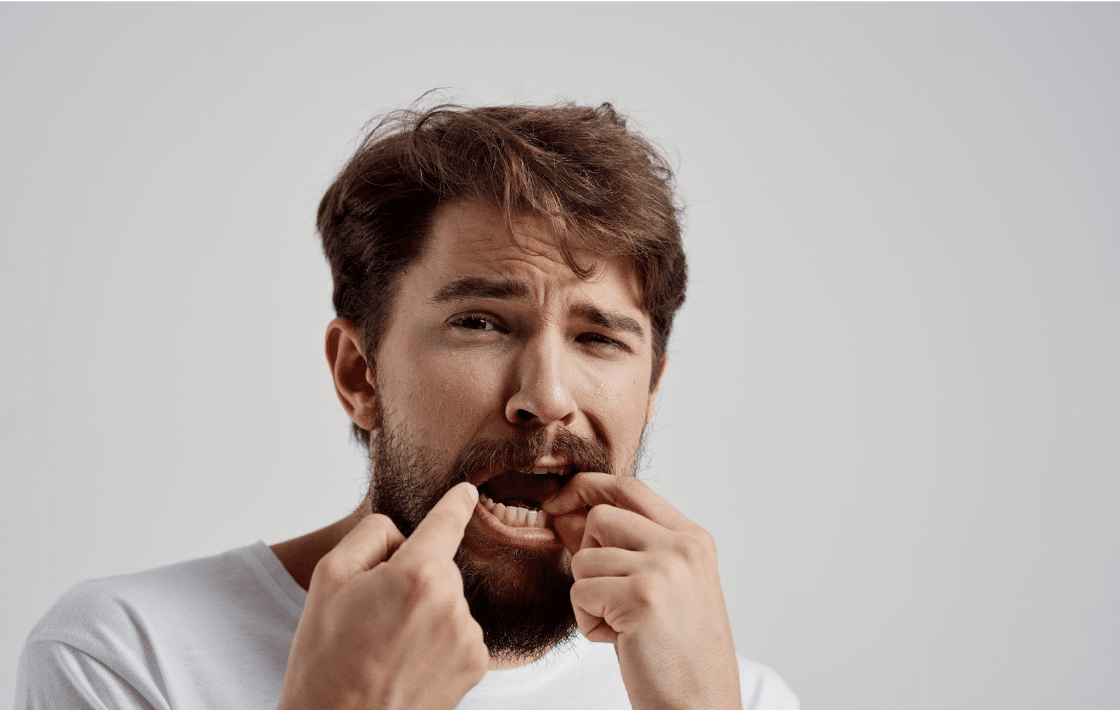The Hidden Dangers of Crooked Teeth
Finding yourself a little annoyed with your crooked teeth, but not enough to have them straightened? You may want to think again.
Often seen as just a cosmetic issue, the alignment of our teeth has a more profound impact on our health than we might realize. From difficulty chewing and cleaning teeth to increasing the risk of jaw pain and even cardiovascular disease, there are numerous health implications of crooked teeth that many individuals don’t realize.
Let’s explore the hidden health risks associated with misaligned teeth, as well as discover some comprehensive orthodontic solutions tailored to improve not just your crooked teeth, but your overall health and well-being. Whether you’re an individual with crooked teeth looking to understand the potential health threats or a parent concerned about your child’s dental development, we can help!
Understanding the Health Risks of Crooked Teeth
As we mentioned, it’s important to remember that the impact of crooked teeth goes beyond just aesthetics. People with misaligned bites often struggle with oral health and face increased risks of numerous health issues. Below are some of the most common health risks associated with having crooked teeth:
Dental Decay and Gum Disease. Crooked teeth often lead to a more challenging time with oral hygiene. They can create tight spaces that are hard to clean, which in turn can lead to plaque buildup and an increased risk of tooth decay and gum disease.
Speech and Chewing Difficulties. For many people, the function of teeth is their primary concern. Misaligned teeth can cause difficulties in both speech and the ability to chew food properly, which can impact digestion and nutrient absorption.
Jaw Problems and Headaches. Teeth that do not come together evenly can put additional stress on the jaw muscles, leading to temporomandibular joint (TMJ) disorders, which are often painful and can also lead to headaches.
Respiratory Issues. In some instances, misaligned teeth can contribute to obstructive sleep apnea, a serious sleep disorder that causes breathing to repeatedly stop and start during sleep.
Cardiovascular Risks. Recent studies have suggested a correlation between poor oral health, including conditions that result from crooked teeth, with an increased risk of heart disease. Doctors aren’t quite sure how the connection between crooked teeth and heart disease works, but they theorize that bacteria that hides behind crooked teeth can seep through the gums and into your bloodstream and arteries.
Orthodontic Solutions for Crooked Teeth
Thankfully, there are several orthodontic solutions available to individuals with misaligned teeth. Each method offers unique benefits, and the choice depends on the severity of the case, personal preference, and the orthodontist’s recommendation. Here are the most popular orthodontic treatments for crooked teeth:
Traditional Metal Braces. The most common orthodontic treatment, traditional metal braces, use metal brackets and wires to gradually move the teeth into their correct positions. They are highly effective and suitable for even the most severe cases of misalignment.
Clear Braces. Clear braces are similar to metal braces but use tooth-colored or clear brackets, making them less noticeable. However, they can be more prone to staining and are typically used for less severe cases of misalignment.
Invisible Aligners. Invisible aligners, such as Invisalign and Spark, are clear, removable trays that are custom-made to gradually shift the teeth. They are popular for their discreet appearance and flexibility but are not suitable for severe cases of misalignment.
Retainers. Retainers are often used after orthodontic treatment to maintain the new position of the teeth. In some cases, they can also be used as a standalone treatment for minor alignment issues.
Orthodontic Surgery. For extreme cases of misaligned, crooked teeth, traditional orthodontic treatments may not be enough. In such instances, orthodontic surgery (orthognathic surgery) can be performed in conjunction with braces to correct the underlying jaw structure.
Tips for Maintaining Your Health with Crooked Teeth
While the pursuit of straight teeth is crucial, it’s equally important to maintain good oral hygiene, especially when dealing with crooked teeth. Here are some essential tips to keep your teeth and gums healthy during orthodontic treatment:
Brush and Floss Regularly. Even with braces, it’s important to brush at least twice a day and floss at least once a day. Using interdental brushes or water flossers can make cleaning around wires and brackets easier.
Watch Your Diet. Sticky and hard foods can damage braces and make cleaning more difficult. Opt for soft, braces-friendly foods and avoid sugary or starchy snacks that can lead to decay.
Visit Your Orthodontist. Regular visits to your orthodontist are crucial for check-ups and adjustments. These visits ensure that your treatment is progressing as planned and that your teeth and gums are healthy.
Be Mindful of Your Bite. If you experience discomfort in your bite or notice that your teeth aren’t coming together properly, it’s important to contact your orthodontist. Ignoring these signs can lead to more significant issues down the line.
Use Fluoride. Supplemental fluoride can help prevent decay, especially in hard-to-reach areas. Your orthodontist may recommend a fluoride rinse or gel to use during your treatment.
The Psychological Impact of Crooked Teeth
Beyond the physical health risks, the psychological toll of crooked teeth shouldn’t be overlooked. Individuals with misaligned teeth often report lower self-esteem and a reluctance to smile, impacting their social interactions and mental well-being. Addressing crooked teeth not only helps prevent potential health issues but can also greatly improve one’s quality of life.
Suffering from Crooked Teeth? We Can Help
Crooked teeth are more than just a cosmetic concern; they can pose significant health risks that should be addressed proactively. With various orthodontic treatments available, individuals can take steps towards a straighter smile and improved overall health.
Consult with one of our orthodontic specialists today to determine the best course of action for you or your loved ones, and remember to prioritize good oral hygiene throughout your treatment. By taking control of your dental health, you’re not just investing in your smile, but in your entire well-being.



